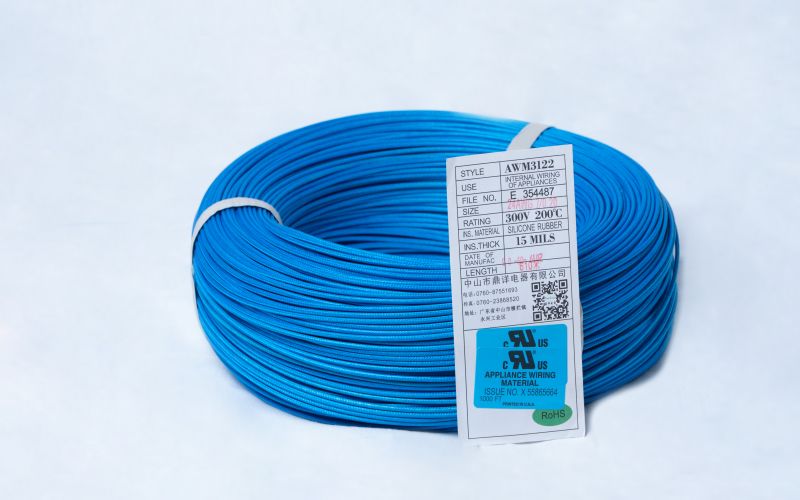Wires are an integral part of our daily lives, used in various applications ranging from electrical circuits to telecommunications. However, have you ever wondered why wires are coated with PVC (Polyvinyl Chloride)? In this article, we will explore the reasons behind the PVC coating on wires and its significance in wire manufacturing.

1. Protection against corrosion
One of the primary reasons for PVC coating on wires is to protect them against corrosion. When exposed to moisture or corrosive environments, bare wires can quickly deteriorate or become damaged. The PVC coating acts as a barrier, preventing moisture and corrosive substances from coming into direct contact with the metal wire. This protection significantly extends the lifespan of the wire and ensures optimal performance.
2. Insulation for electrical safety
PVC coating plays a crucial role in electrical safety. It acts as an insulating material that prevents the flow of electric current through the wire to external surfaces, minimizing the risk of electric shock. Without PVC coating, wires could pose a significant danger, especially when used in electrical installations or appliances. The PVC insulation provides a reliable safeguard for preventing accidental contact with live wires and potential electrical hazards.
3. Flexibility and durability
PVC coating enhances the flexibility and durability of wires. The PVC material is highly flexible, allowing the coated wire to bend and twist without cracking or breaking. This flexibility is particularly important in applications where wires need to be routed through tight spaces or need to withstand repeated movement. Moreover, the PVC coating also adds a layer of protection against physical damage, such as abrasion or impact, ensuring the wire's longevity.
4. Easy identification and organization
PVC coating on wires often comes in various colors, providing an easy and efficient way to identify and organize different wire types or circuits. For instance, red PVC-coated wires might indicate live or phase wires, while green or yellow-coated wires could represent ground or earth wires. This standardized color-coding simplifies installations, repairs, and maintenance, saving time and minimizing errors.
5. Resistance to chemicals and environmental factors
PVC coating offers excellent resistance against chemicals and environmental factors. This property is particularly beneficial in industrial settings or outdoor applications where wires may be exposed to harsh chemicals, ultraviolet radiation, extreme temperatures, or moisture. The PVC coating acts as a protective shield, preventing these external elements from causing damage to the wire, ensuring its reliability in diverse conditions.
6. Fire safety
Another crucial advantage of PVC coating is its fire-retardant properties. PVC-coated wires have a high ignition temperature and self-extinguishing properties, making them less susceptible to catching fire and limiting the spread of flames. This feature is essential for ensuring the safety of electrical installations, reducing the risk of fire accidents, and providing valuable time for evacuation or applying appropriate fire suppression measures.
7. Cost-effectiveness
PVC-coated wires offer a cost-effective solution in comparison to other wire coating options. PVC is a widely available and affordable material, making it an economical choice for wire manufacturers. Additionally, the durability and longevity provided by PVC coating contribute to cost savings by reducing the need for frequent wire replacements or repairs.
In conclusion, PVC coating on wires serves multiple purposes, including protection against corrosion, insulation for electrical safety, flexibility, easy identification, resistance to chemicals and environmental factors, fire safety, and cost-effectiveness. This versatile coating ensures the longevity, reliability, and safety of wires in various applications, making it an integral part of wire manufacturing.


